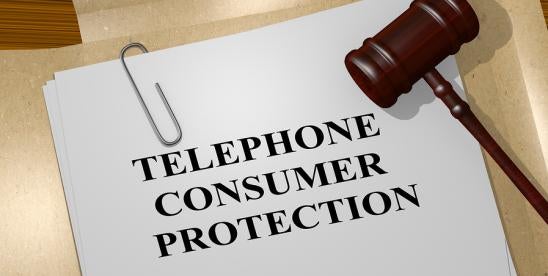You might recall last month Navient was hammered for calls it made in reliance on the government-backed debt exemption.
Although the TCPA plainly permitted the calls it made at the time–as in the express language of the statute literally exempted the calls it made from coverage–the Court determined that AAPC voided the exemption as if it never existed. So the rug was pulled out from under Navient and it could be held liable for calls that were plainly legal at the time there were made. (I called this “madness” in my very-will read blog on the subject.)
Well yesterday the Court denied Navient’s effort to reconsider that issue but afforded it a sliver of a chance to challenge the ATDS component of the claim.
Specifically in Franklin v. Navient, Inc., No. 1:17-cv-1640-SB, 2021 U.S. Dist. LEXIS 98587 (D. De. May 25, 2021) the Court determined that the pro se Plaintiff–yes Navient is getting roughed up a bit by a dude representing himself– had not waived his claims related to ATDS calls, as Navient had claimed. But rather than deny Navient any relief it tossed a bone and allowed Navient to brief whether ATDS calls had been made after Facebook.
Nonetheless, the Court suggested that it might deny Navient’s effort to rely on Facebook because it failed to raise the ATDS argument earlier in the case:
Navient may file another motion to reconsider and argue why the autodialer theory fails. If it files one, it should also explain why I may consider its arguments in a motion to reconsider. In particular, if it relies on the Supreme Court’s recent decision in Facebook v. Duguid, it must explain why it could not have invoked Duguid’s rule originally. See 141 S. Ct. 1163, 1168-69 & n.4 (2021) (showing that the Third Circuit had reached the same conclusion in 2018).
In other words the Court is going to let Navient have a shot at convincing it to dismiss the ATDS claims, but in order to do so Navient needs to explain why it failed to raise the TCPA’s narrow ATDS definition earlier in the case. The clear implication is that the Court may elect not to reconsider earlier ruling in Plaintiff’s favor unless Navient can justify failing to raise the ATDS issue earlier.
Eesh.
This is why litigators must always be extremely cautious to raise and preserve all appropriate arguments and not simply rely on a single defense–even if it seems bullet proof. The Supreme Court–like the biblical wedding host of parable– may one day humble the defense you exalted and exalt the defense you ignored.
And then you might get kicked around the courthouse by a pro se.
More to come on this interesting little case.




 i
i


